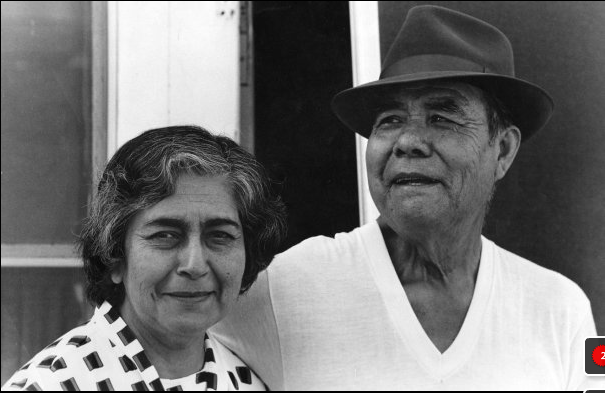This isn’t a post about food.
This is a post about love.
I am the grandchild of immigrants. My mother’s parents were Mexican and my father’s were a motley mix of Irish, English and Dutch Jew. In Azteca/Mexica tradition it is believed that we stand upon the shoulders of our ancestors and I stand firmly on a strong foundation.
Here’s what I know.
My grandfather Chava, Salvador Medina Camarillo came to the U.S. sometime around 1915 for the first time. He was either fourteen or fifteen years old, being born on June 1, 1900. The Mexican Revolution was tearing up Mexico and one of the bloodiest battles was not too far from my grandfather’s little town in Guanajuato. Family stories tell me that he was born in Michoacan but the family moved to Irapuato, Guanajuato when he was still a small child. I know little of his young life, except that he went out in the fields to work with his father when he was only three years old. He made two centavos and used one to buy a cooking pot for his mother and the other centavo he gave to her. That character, that loving generosity was to become the trademark of the man he became.
In any case, my grandfather arrived in the United States seeking what most sought at the time; refuge from war and hunger – a better life. He often told me stories of finding himself in Vegas hungry with no money, told me about working in Cheecago (Chicago), shuttling back and forth to Mexico and traveling with the pisca (harvest) living the life of a migrant farmworker. He was thirty-five years old or so when he met my grandmother Lupe and she was 15 years his junior. That meeting changed both their lives and will have to be told in another post.
My grandmother Lupe was born here, the baby in a large family. She was born on the way from Mexico to here. The story is that my great-grandfather and great-uncles were here in the U.S. working in the fields while my great-grandmother Teresa waited in Abasolo, Guajuato their home. Now the Gonzalez’ were mixed blood – indigenous Otomi and Spanish blood. Some of them were pale-skinned and freckled with red hair and green eyes and the rest were dark brown, with straight black hair and high cheekbones. My Tia Andrea, the oldest was said to be a startling beauty with long, curly red hair past her waist, sparkling green eyes and skin so pale she could have been a Romance novelist’s dream. At the time my great-grandfather Florentino was in Ventura County picking oranges, she was sixteen years old and Pancho Villa was heading into town. My very religious great-grandmother had heard the stories about Villa, how he loved women and stole them. No way was his army or him getting his hands on Andrea or any of the other daughters.
Using viagra 100 mg usually in stock online Penegra is the best drug that is safe to use with no prescription but only for men who are suffering with erectile dysfunction.
The family story (doesn’t every Mexican family have a story of Pancho Villa?) is that my great-grandmother Teresita tried to get word to her husband that she needed to get out of Mexico and now. No word arrived from him. There wasn’t internet or phones and mail sure as hell wasn’t reliable in a war-torn Mexico. Determined, she decided to go on foot with her daughters, the youngest boy left at home and her pregnant belly. She got out just in time and walked herself and those children through God only knows what till she got to Ciudad Juarez where she ran completely out of money and time. Pancho Villa had arrived in Juarez.
Great-grandmother Teresa hid her girls I’m not sure where, but she hid them and hid them good. She put on a rebozo (shawl), rubbed her face with dirt and bent herself up like a very old woman. Taking her youngest boy, she went to face El General himself. She told him she was trapped in Juarez and needed to get to her husband.
Word is that she cried up a storm and it moved him. He gave her money and gold earrings for her and her little boy to get to her husband. Under cover of night, she slipped away with her girls, her young son and made it to her husband in Ventura County somehow. I don’t know how much of this story is true and how much is exaggerated. I do know that those earrings exist in my family and have passed down through the years. My Tia Luz had them till she gave them to one of her granddaughters, my cousin who wears them proudly. What is true is that this amazing woman, these incredibly brave people who were my family crossed miles and mountains through starvation and danger to give me a better life.
My grandmother Lupe was born here, an American citizen. My grandfather never became a citizen because his birth records were burned in the war. He had a green card and permanent resident status till the day he died.
Where would I be today if they hadn’t come here? There wasn’t a day that went by that they didn’t tell me how lucky I was to be born here, an American. They were proud to contribute to this country
Here’s the thing, my Irish grandfather Cecil crossed over to make a better life for himself too as did my great-grandfather Cornelius Losey who came over to Michigan from Holland. They are seen as brave, as heros, immigrants who made this country what it is today, while my brown grandparents and great-grandparents who did the same exact thing are vilified. Why? What’s the difference?
No one being human, is illegal. I stand upon the shoulders of my ancestors and they were giants. Soy orgullosa de tener sangre Mexicana.
